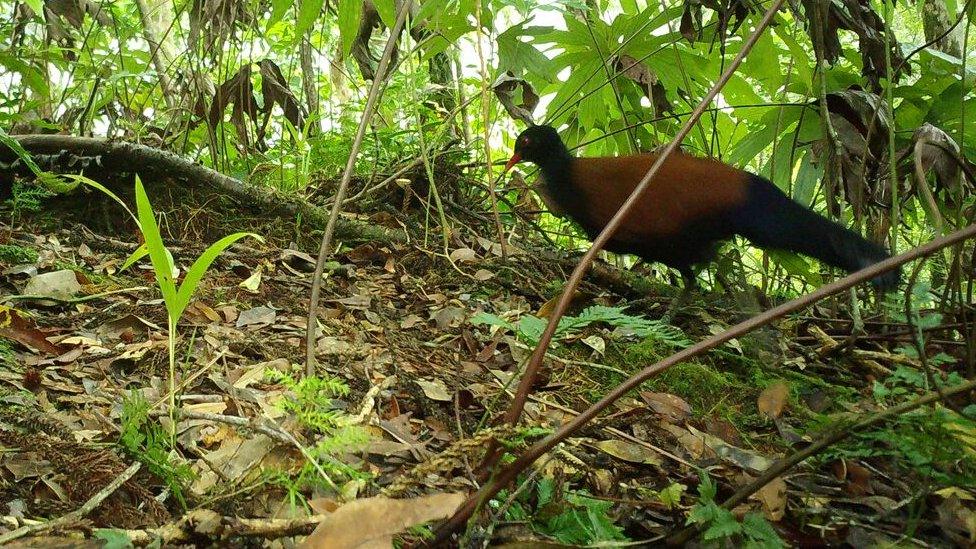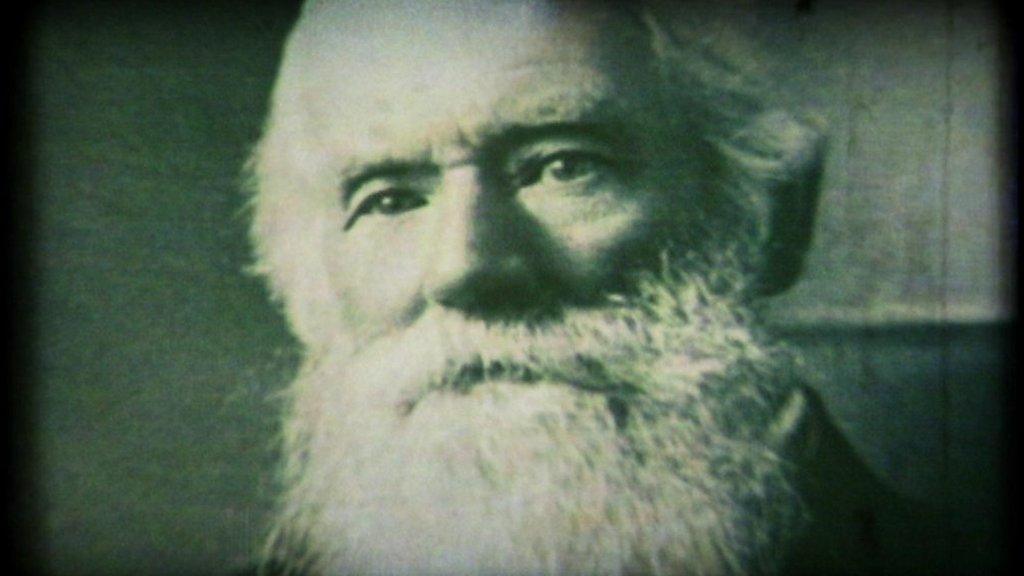Rare black-naped pheasant pigeon found by scientists again after 140 years
- Published
- comments

This is a black-naped pheasant pigeon, and it's been lost for a VERY long time!
Losing things can be incredibly frustrating, but finding what you've lost is always a very satisfying experience.
So you can imagine the joy these scientists felt when they found a bird that hadn't been seen in 140 years!
It's called a black-naped pheasant pigeon, and a group of researchers spent weeks scouring the forest for it on an island off the coast of Papua New Guinea.
They installed lots of cameras across the area they searched, to cover more ground.
Then finally, on 29 September, they realised they'd snapped it!
When one of the scientists Doka Nasonm saw the pictures of the elusive bird he said: "This is the happiest moment ever. My legs are shivering.
"We did it!"
The team said the help of "countless" locals living on the island led to this "triumphant moment".
John Mittermeier, director of the Lost Birds programme and co-lead of the expedition said: "After a month of searching, seeing those first photos of the pheasant-pigeon felt like finding a unicorn."

The last one of these to be found by scientists was in 1882! This is a screenshot from the footage the researchers captured of the bird
They're only found on Fergusson Island, and some of the scientists had looked for the pheasant pigeons there in 2019, but were unsuccessful.
Not much is known about them - the last bird that was collected for scientific reasons was found in 1882, and can now be found in the Natural History Museum in London.
The researchers hope that getting these pictures means they'll be able to better protect others that live in the area.
And not just black-naped pheasant pigeons - Christina Biggs, Manager for the Search for Lost Species at Re:wild, said: "This rediscovery is an incredible beacon of hope for other birds that have been lost for a half-century or more."
- Published4 December 2020

- Published19 May 2022

- Published27 June 2011
